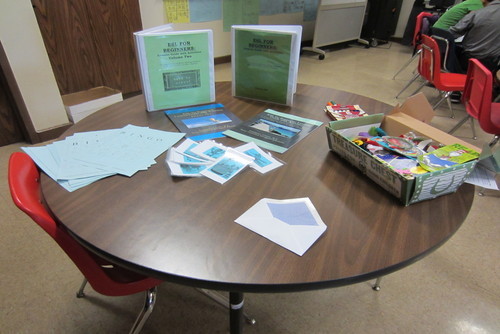The good news though there are several ways you can improve your English language skills especially if you avoid some commonly made mistakes.
So even if you have a scarce knowledge of the English language, with time and effort, you can master the language and be better than native English speakers.
At least that’s what Lauren Bradshaw, a leading academic writer claims to be true. We’ve talked to Lauren and she has identified several typical mistakes that even native English speakers make which if avoided really can improve your writing skills.
Check out Lauren's top writing tips for non-native English speakers and some of the most common mistakes to avoid.
1. Sentence Fragments
A sentence fragment is an incomplete sentence. An example is: After he went over to his friend’s house.
In this sentence, there needs to be either something after the fragment or something before it. A correct way of writing it would be: After he went over to his friend’s house, he cleaned his room. Or: He cleaned his room after he went over to his friend’s house.
2. Run-Ons
A run-on is a sentence that is too long.
For example: After he went over to his friend’s house, he cleaned his room and then he took a shower and went to bed because it was very late and he was tired.
Though using complex sentences is a good idea, you have to know when to stop. A correct way of writing this sentence would be: After he went over to his friend’s house, he cleaned his room. Then he took a shower and went to bed. It was very late and he was tired.
3. Spelling
Spelling is one of the biggest challenges for international students going to study abroad. Writing words how they sound in your head is one of the easiest ways to make mistakes, but through practise and studying you can really improve your spelling skills.
If you have any doubts when writing a sentence always check and double check to make sure it is correct. There are lots of apps and websites available which will help you make sure all words are spelled correctly.
4. Homonyms/ Word Meaning
There are lots of words in English that sound the same or similar but have very different meanings which can be a big challenge that even some native speakers struggle with. This can lead to words being used incorrectly without even knowing. Here are some common examples:
- accept/except
- effect/affect
- there/their/they’re
- two/too/to
Again, always make sure you check to see which word will go best with the sentence you are trying to write.
5. Subject-Verb Agreement
Even native speakers tend to get subject-verb wrong as sometimes it can be difficult to know wether to use third person or signular.
It is important to think about the subject you are focusing on, is it a topic talking about one thing (collectively) or more than one thing? Try to remember there are also exceptions to every rule. For example:
- Wrong: The most important ones in my life has been going to South Korea.
- Correct: The most important ones in my life have been going to South Korea.
6. Unclear Pronouns
When a pronoun is unclear, it can lead to some confusion in the meaning of a sentence. Have a look at the example below:
When Jane finally found her little sister, she was so happy.
vs.
Jane was so happy when she finally found her little sister.
In the first sentence, it is unclear if the little girl or Jane is happy. This is because “she” is an unclear pronoun. The second example is much better because it is crystal clear who is happy and why.
7. Extra Resources
Looking to improve your writing through self-study? Here are some of the top advice Lauren advises you to check out:
- Online/classroom courses can help you to become a more confident and proficient academic writer as an international student.
- Books and websites will really help you to improve your writing skills
- Practice, practise and practise more
'Writing in English might seem like a nightmare at first, especially if you are trying to submit work to degree standard. But with the right approach and a little bit of practice it will soon get better,’ Lauren adds. ‘But you can even speed up the practice - order custom paper samples and learn on their basis. Having a flawless example to follow is always a good idea in writing.’
If you are interested in improving your language skills view English courses worldwide or view study abroad programs. You can also search opportunities in popular English speaking countries via the links below:







